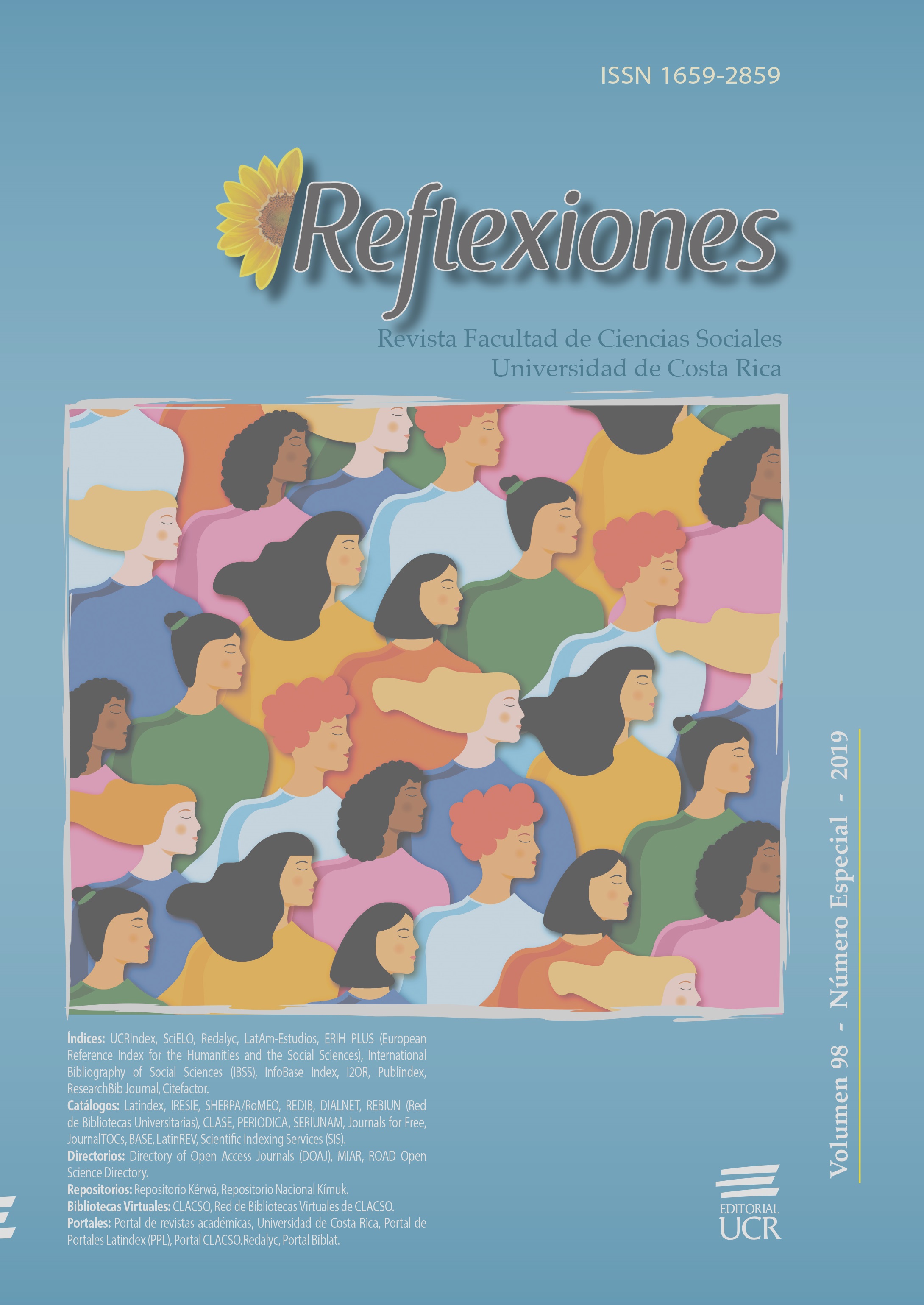Resumen
La trata de personas ha sido reconocida como una severa violación a los derechos humanos y un asunto de justicia social. Esta manifestación de violencia ha alcanzado una magnitud significativa en Costa Rica, siendo atravesada además por una direccionalidad de género, lo que implica que suele afectar principalmente a las mujeres por su condición de género. Este trabajo recopila los resultados más relevantes de una investigación sobre la respuesta institucional en el ámbito de la prevención, atención y sanción de la trata de personas, realizada en el periodo 2016-2018 desde el Centro de Investigación en Estudios de la Mujer. El estudio fue de carácter cualitativo-descriptivo y se basa en la perspectiva de personas funcionarias de instituciones estatales con competencia en el abordaje de esta problemática. Su objetivo principal fue la identificación de las buenas prácticas y los retos pendientes en el combate de la trata de personas. Los resultados del estudio evidencian que pese a los avances en la materia, la dinámica particular de la trata de personas suscita una serie complejidades referidas a su abordaje. Aunque se identifican buenas prácticas referidas a la detección e intervención especializada de personas víctimas, elementos como la prevención primaria, el acceso a la justicia, el monitoreo y evaluación de las acciones institucionales persisten entre los grandes desafíos. Se pretende que este trabajo se sume a los aportes hacia la producción de conocimiento crítico y comprometido con el ejercicio pleno del derecho de las mujeres a vivir libres de violencia.
Citas
Castro, Oscar y Raquel Pastor. 2010. Acceso a la justicia para mujeres y niños víctimas de trata. México: Centro de Estudios Sociales y Culturales Antonio Montesinos, A.C.
Claramunt, Cecilia, Ivannia Chavarría y Melissa Vega. 2006. Atención a víctimas y sobrevivientes de violencia sexual. Lecciones aprendidas y buenas prácticas desarrolladas en los servicios de salud de cuatro países de América Latina: Bolivia, Brasil, Costa Rica y México. Nicaragua: IPAS.
Ellsberg, Mary y Lori Heise. 2007. Investigando la violencia contra las mujeres. Nicaragua: Organización Mundial de la Salud y Program for Appropriate Techonology in Health (PATH).
Hernández, Roberto, Carlos Fernández y Pilar Baptista. 2010. Metodología de la investigación. 5. ed. México: McGrawHill/ Interamericana Editores.
Ley n.º 9095 del 26 de octubre del 2012 Contra la Trata de Personas y creación de la Coalición Nacional Con¬tra el Tráfico Ilícito de Migrantes y la Trata de Personas (CONATT). (La Gaceta, Alcance Digital, 08 de febrero de 2013). Acceso: 10 de abril de 2018. http://www.migracion.go.cr/institucion/Trata/Ley%20Trata%20de%20Personas%20(difusion%20digital).pdf
Ley n.º 7499 del 24 de abril de 1995 Aprobación de la Convención Interamericana para prevenir, sancionar y erradicar la violencia contra la mujer «Convención Belem do Pará». (La Gaceta, 28 de junio de 1995). Acceso: 20 de abril de 2019. http://www.ciem.ucr.ac.cr/IMG/pdf/ley-7499.pdf
Organización Internacional para las Migraciones (OIM). 2012. La trata de mujeres: una manifestación de la violencia contra las mujeres. Costa Rica: OIM.
Rodríguez Fernández, Adriana y Patricia Ramos Con. 2018. «Entre lo oculto y lo silenciado: la trata de personas en Costa Rica y sus desafíos para la investigación académi¬ca». Revista Espiga 17, (35): 18-30. http://dx.doi.org/10.22458/ re.v17i35.1803.
Rodríguez Fernández, Adriana y Alberto Rojas Rojas. 2011. Trata de personas con fines de explotación laboral en Centroamérica. Costa Rica: Organización Internacional para las Migraciones (OIM).
United Nations Office on Drugs and Crime (UNODC). 2018. Global Report on Trafficking in Persons 2018. New York: United Nations. Acceso: 20 de abril de 2019. https://www.unodc.org/documents/lpobrazil//Topics_TIP/Publicacoes/GLOTiP_2018_BOOK_web_small.pdf

